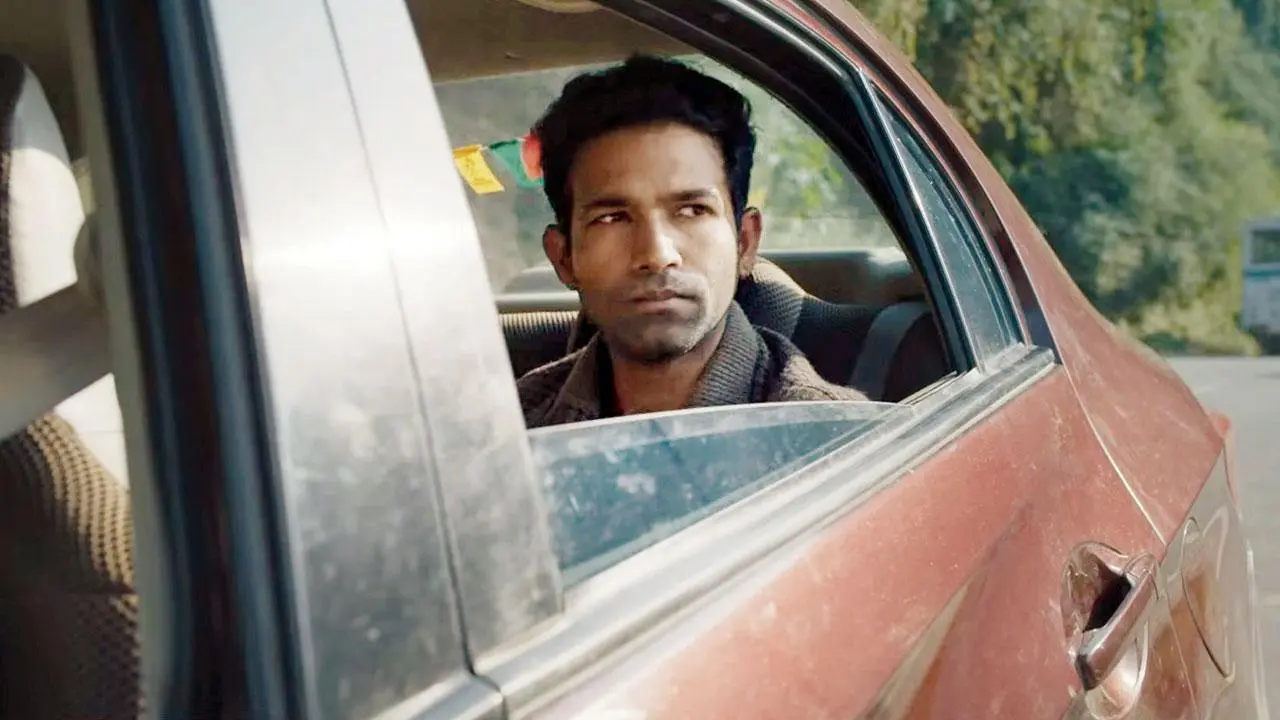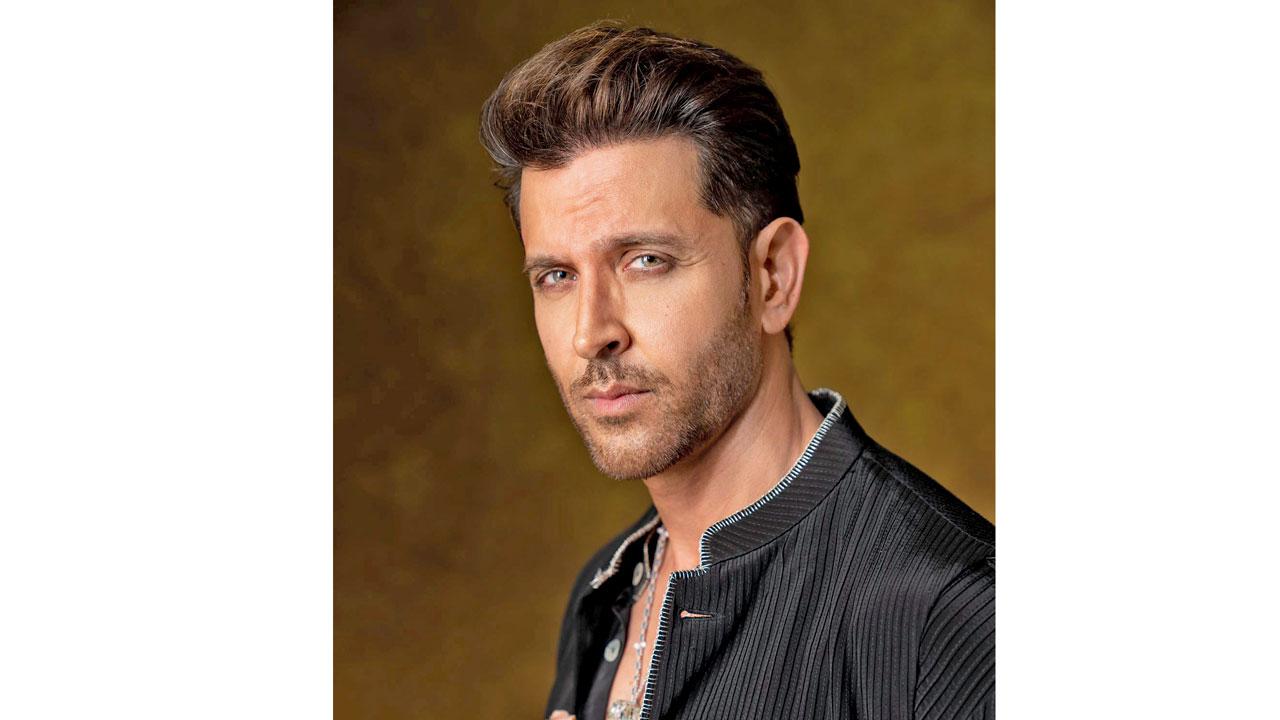What happens when acting coach enters film as writer, director, performer? That’s why I went over to watch Pushtaini

Acting coach Vinod Rawat in Pushtaini
 Rightly awestruck by Sonam Kapoor in Ram Madhvani’s Neerja (2016)—that she’d delivered nothing close to, until then; or has, since—actor Hrithik Roshan went up to Sonam’s dad Anil to figure what had gone into that performance. The secret sauce, as it were.
Rightly awestruck by Sonam Kapoor in Ram Madhvani’s Neerja (2016)—that she’d delivered nothing close to, until then; or has, since—actor Hrithik Roshan went up to Sonam’s dad Anil to figure what had gone into that performance. The secret sauce, as it were.
That’s the first time Hrithik heard of one, Vinod Rawat, an acting coach, employed to assist Sonam, for the film. Shortly thereafter, Hrithik’s manager called up Vinod, looking to hire him as the superstar’s personal acting coach as well. Something he’s been with Hrithik for all his movies since Kaabil (2017)—Super 30, Vikram Vedha, Fighter, etc.
I first heard of Vinod, in his late 30s, because of the feature film, Pushtaini (Ancestral), where he’s debuted as producer, director, co-writer, also acting in it, as the lead. Hrithik has presented the picture. In the sense that he’s essentially lent his name to it.
Pushtaini however is nothing like big-budget Bollywood blockbusters Hrithik stars in. So, from a brand-sense, this isn’t associative for audiences. Like, say, Alfred Hitchcock Presents (for mystery-thrillers), or how Anurag Kashyap presents mainly indie, darker sides of the moon.

His student Hrithik Roshan
That said, I drove up early Tuesday morning for Pushtaini, because it’s relatively rare for movies to be screened half a week before its theatrical release on a Friday. Personal confidence of filmmakers over what they’ve made, being directly proportional to how early they’re willing to share it with the press.
And I don’t mean here a side-show for “select media”, in lieu of potentially rigged posts/ratings! In self-perception, I figured, Vinod isn’t delulu.
Pushtaini is a bitter-sweet—inherently light, deeply personal, mostly gloomy, yet wholly entertaining—take on the protagonist, Bhupi, or Bhupinder Rawat, that’s Vinod himself, who’s moved from Uttarakhand to Bombay, to pursue acting as a profession, with the screen name, Aaryan Shaw!
This bit is limited to the first few minutes, as Pushtaini—thereafter, more or less a road film— hilariously opens with the scene of Vinod, amateurishly overacting opposite Rajkummar Rao, in a Bollywood production.
Vinod tells me he studied acting at FTII, Pune, where Rajkummar, who he’d done theatre with in Delhi, was his senior.
Rajkummar cameos as a character called Ankur Bhatia in the film. The name isn’t a coincidence. Ankur Bhatia is actually one of the leads in the Disney+ Hotstar series, Aarya (2020), where Vinod had directed multiple episodes for Ram Madhvani.
The world of aspiring actors—don’t know why they’re disparagingly termed strugglers—that Vinod captures in Pushtaini, he says, is from his varied experiences, hosting acting workshops in Bombay. He was casting director for acting-mentor Atul Mongia.
Of course, Vinod himself must’ve moved from Delhi to Pune to Bombay to become a screen actor; what else? “Kaathi, kadh (frame, height) and other factors didn’t match up,” he says, despite an educational degree (from FTII) that, for media in general, counts for precious little.
Evidently, teaching the art-form, instead, became fulfilling enough for Vinod. Which is also what makes Pushtaini interesting—to watch a pic, purely from the actor’s POV.
Rather than fixate over spectacle/frills, of which there is none. Or the script alone, that—although laden with a couple of debut-type clichés (suicide, child sex abuse)—is competent enough to sustain the viewing experience.
As an instructor of the craft, Vinod tells me, he’s at the moment devoted to “sensing energies”. Which is hard to explain, but he applies it with mixing up the film’s cast with non-professional actors: “The bua, jiju, who’s an accountant, the niece (running after her uncle)… They’re real.”
As for performances itself, Vinod says that while he used to obsess with achieving conventional realism, once upon a time, he finds that boring now: “What’s loud can be exciting; what’s subtle could get too slow...
There are, anyway, only two kinds of acting—fake (make-believable), and non-fake (believable).”
You can tell, Vinod similarly attempts variety, throughout Pushtaini. I enjoyed how his character fits into the larger film. His students must closely dissect his act with a sharper scalpel. One of the pupils, in a way, being Hrithik!
Which brings me back to what I’d been wondering before I called up Vinod. What does a full-time acting coach do, for an established actor, especially Hrithik?
For one, there’s already a director on the set. Vinod never visits the set. Plus, achieving peculiarities for a particular part, apart—it’s not like Hrithik, superstar for two and half decades, must need after-school, extra-classes, no?
As coach, Vinod likens himself to a fellow singer/musician for “riyaaz”/rehearsal—it helps with the “jugalbandi” (jamming), since there are 10 different ways of exploring a scene, if you aren’t set in your ways, that is.”
The rule of thumb he goes by, he says, is how “thoughts [in a scene] must lead to words, instead of the other way around. We have to understand the core of the act. Of course, once we do that, we have to corrupt it [for Hrithik], because we’re working in a commercial set-up; can’t go full realism!”
After his directorial debut, Vinod goes back to the corner of the ring, for fighter Hrithik, in War 2! His own movie, obviously, is quite different from his mainstream coaching.
Mayank Shekhar attempts to make sense of mass culture. He tweets @mayankw14
Send your feedback to mailbag@mid-day.com
The views expressed in this column are the individual’s and don’t represent those of the paper.
 Subscribe today by clicking the link and stay updated with the latest news!" Click here!
Subscribe today by clicking the link and stay updated with the latest news!" Click here!








